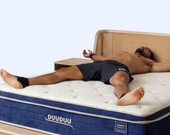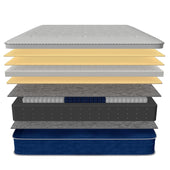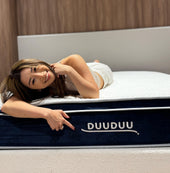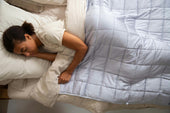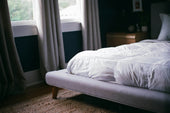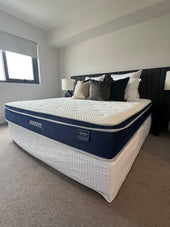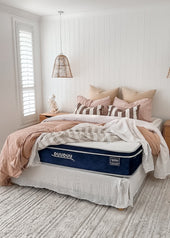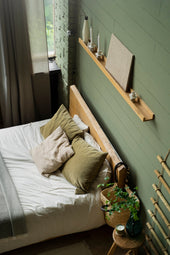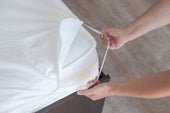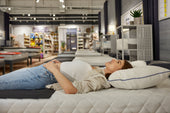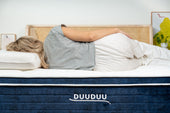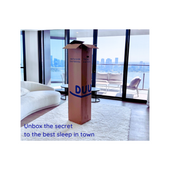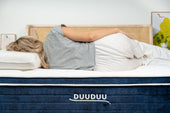Living with scoliosis comes with its own unique set of challenges—and one of the most overlooked but essential aspects is sleep quality.
Because scoliosis affects the curvature of the spine, the wrong mattress can worsen discomfort, disrupt rest, and even lead to long-term complications.
Choosing the right mattress isn’t just about comfort—it’s about support, alignment, and relief.
There is a link between scoliosis and sleep which we should not neglect.
What is Scoliosis?
Scoliosis is a condition where the spine curves abnormally to the side, often forming an “S” or “C” shape.
While it can affect people at any age, it's commonly diagnosed during adolescence.
How Does Scoliosis Affect Sleep?
a. Pain and Discomfort: The uneven distribution of weight along the spine can lead to muscle fatigue and back or neck pain, particularly when lying down for extended periods.
b. Poor Spinal Alignment: Traditional mattresses may fail to provide adequate support, causing unnatural postures during sleep.
c. Interrupted Sleep Cycles: Pain or discomfort may lead to tossing and turning, resulting in fragmented sleep and reduced restorative rest.
d. Increased Pressure Points: Areas of the back, hips, or shoulders may experience extra pressure due to uneven support.
Though the severity of symptoms can vary, sleeping posture and mattress quality can significantly influence how well someone with scoliosis rests.
Why Your Mattress Matters
When you sleep, your body needs to relax and recover.
A good mattress helps your spine stay in a neutral alignment, allowing muscles and joints to rest without stress.
For those with scoliosis, this balance is more delicate.
A mattress that is too soft may let the body sink in, exaggerating spinal curves.
A mattress that is too firm can apply pressure on sensitive areas, causing pain.
What’s needed is contoured support or what we say the perfect support—something that provides cushioning while promoting spinal alignment.
Sleeping Positions and Scoliosis: What Works Best?
Your sleeping position matters just as much as your mattress.
Here are the best practices for scoliosis sufferers:
1. Side Sleeping with Pillow Support
This is often the most recommended position.
Use a body pillow or place a cushion between your knees to reduce tension in the lower back and hips.
Avoid curling up too tightly, which can strain the spine.
2. Back Sleeping with a Pillow Under Knees
Sleeping on your back can keep the spine neutral.
Placing a small pillow under the knees relieves pressure on the lower back and reduces the arch in the lumbar region.
3. Avoid Stomach Sleeping
This position can force the spine into unnatural angles, especially in the neck and lower back.
If unavoidable, use a thin pillow or none at all to reduce strain.
Tips for Choosing the Right Mattress
1. Test Before You Buy: Always try the mattress for at least 10–15 minutes in your usual sleep position if you’re shopping in-store.
2. Look for a Trial Period: Many online mattress brands offer a 100–120 night trial.
This is especially important if you have scoliosis, as it may take weeks to notice improvements.
DuuDuu offers 100 night free trial with your new mattress.
3. Check Return Policies: Make sure there are easy return or exchange options in case the mattress isn’t the right fit.
4. Don’t Forget the Base: A supportive bed base can extend the life of your mattress and enhance its benefits.

Sleep Smart, Sleep Supported
Scoliosis doesn’t have to rob you of good sleep.
By choosing a mattress that supports your spine, cushions your pressure points, and encourages alignment, you can reduce discomfort and improve the quality of your rest.
While there's no one-size-fits-all solution, the right mattress—whether memory foam, hybrid, or latex—can make a world of difference.
If you're living with scoliosis and struggling to sleep well, don’t underestimate the power of a well-crafted mattress.
It might not cure the curve, but it can absolutely smooth out your nights.



